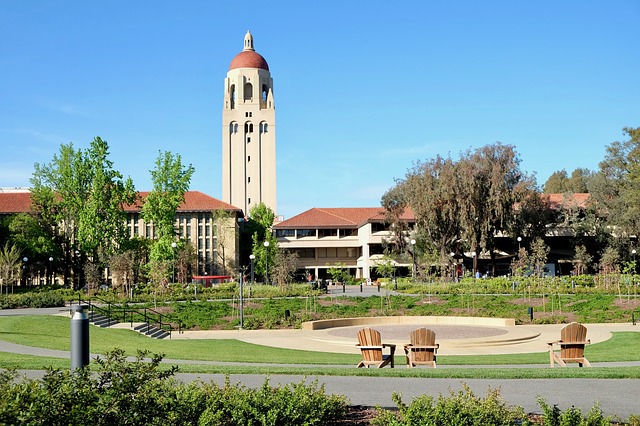Rethinking Prestige
Rethinking Prestige
Origin of “prestige”:
From French prestige – “illusion, fascination, enchantment.”
From Latin praestigium – “a delusion, an illusion.”
In the wake of the recent admission scandal, a reporter from a newspaper asked me why this sort of thing even happens.
To tell you the truth, I do not know. When I was applying to college, I never got caught up in the obsession to go to a prestigious university. And yet, while I do not understand it, I see this kind of ambition all the time.

In general, I work with two types of students:
- A student who is not really worried about which college they will attend. Their attitude and their family’s attitude is that no matter where they get accepted, they will do great. If they happen to be admitted to a prestigious school, that would be great, but it is not the most important measure of their success.
- A student who is convinced that going to a prestigious university is the only way for them to be successful at the end of their college career. They believe that the prestige of the institution—amongst all the other great things they will do in that school—will elevate them to great prosperity and happiness in their life and career.
So, What Is Wrong With Prestige?
That is usually the question I hear from students and families who are strongly focused on prestige.
Well, there is nothing objectively wrong with prestige. But to hang your hopes and dreams on an illusion is wrong.
Plenty of research and anecdotal evidence reveals that the prestige of a university is not responsible for a student’s success and happiness.
In his post, “Parents: It Doesn’t Matter What College Your Kids Attend,” in Psychology Today, author Peter Gray, Ph.D., basically said: Yes, it is true that many highly-selective universities have a fantastic track record of graduates who go on to have successful careers, attend graduate school, or make remarkable contributions to their fields or the world in general. Yet, while there is a correlation between prestigious schools and successful students, there is a big difference between correlation and causation. In other words, there is no evidence that by simply going to a prestigious, highly-selective school, a student will somehow automatically be successful, happy, motivated, or have great insights into anything.
And that difference between correlation and causation is the illusion of prestige!
Why Does Prestige Become Misdirected in a Way That People Get Confused About It?
Making choices about important rites of passage, serious and challenging adult decisions (and, in the case of college, expensive decisions) is hard.
It is tempting to want to latch on to something concrete and many choose to lean on the idea of prestige to make college decisions easier. However, prestige is not based on evidence, reality, or fact, but is simply an opinion of a group of people, most of whom you do not know.
If you want to choose prestige when making some choices such as purchasing a new car or clothes or a really cool pair of sunglasses, go for it. But that way of decision making has no place when it comes to most of life. For example, choosing a friend, a life partner, or a place where you want to make your home is not about what other people think.
Prestige does not belong in the consideration of making those kinds of choices—nor should it when choosing education!
“It is about survival and job security”
I have had this type of conversation with many families and students over the years. And, eventually, many see where I am coming from.
Yet, some are not convinced. They patiently listen to my point of view and, afterward, say: “I know for a fact that my child must graduate from [insert name] university so that they can be successful and get a great job.”
Many of these families will insist that it is not about prestige, not about what other people think or about bragging rights, and not even about if their student will be happy in their life. They are convinced that it is about survival, about making enough money. Basically, they look at the world of work as a dog-eat-dog competition for scarce resources—secure employment and jobs that pay a lot of money.
My response? I am not naive. Yes, in certain limited cases, I understand that there may be specific fields where it could be beneficial to have graduated from a highly-regarded, prestigious university. But, even as I write this, the majority of students are facing a world of work that is changing dramatically. Professions will change, preferred degrees and prerequisites for certain jobs will change, some industries will be transformed in unimaginable ways, and some industries will move to other parts of the world or will be eliminated altogether. New professions will be (already are) emerging for which there are no majors today.
Ultimately, ample evidence exists on what hiring managers consider when looking at job applicants. They typically do not look at the reputation of the college, but at the candidate’s choices of majors, internships, and experience in the field.
Relying on Regular Commonplace Observations
If you think the matter of prestige is about survival and providing the best for yourself or your child and the future, remember, there is a distinct difference between correlation and causation.
While there is some evidence to support the selection of a prestigious school, I personally also rely on everyday experience and observations of the happiness and success of those around me.
Therefore, I would like to encourage you to do the same. Look around and think about all the people you know (including yourself) who are successful, happy, and making contributions to society and their community, but who did not go to a highly selective, prestigious institution.
In my world, those are most of the people I know!
—
If you would like to know more about how to make good choices when selecting colleges to apply to, please contact me. I would be delighted to use my extensive experiences as an Independent Educational Consultant to help you narrow down the choices.


